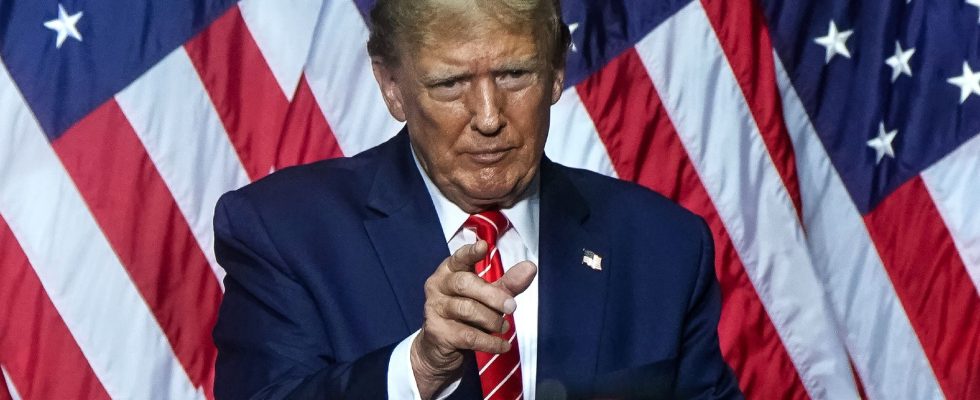THE deepfakes are already there, these photos, sound or video recordings which, composed or modified by artificial intelligence, deceive our senses to the point of making us mistake the false for the real. Having made their first appearance in the mid-2010s, they serve both to satisfy pornographic compulsions and to manipulate opinions, as when a false video circulated on social networks featuring Volodymyr Zelensky calling on his population to return the weapons. The shadow of Russia was not far away.
The worst is often certain in this area, these visual and realistic lies have entered the American campaign, which the whole world is watching. This is how supporters of Donald Trump massively circulated on social networks dozens of different images of their candidate warmly surrounded by black voters: they, smiling, seemed to grant him their vote in advance. The problem is that these “photos” are completely fictitious, since they are generated by artificial intelligence with the obvious aim of propagating a narrative within a population that may prove decisive for the outcome of the elections. Indeed, Joe Biden can still count mainly on the black vote, but less massively than during the previous election. However, in certain key states, such as Georgia, the shift of a part – even a small one – of the black vote could change the face of the election. In the six strategic states for this election, it is estimated that 71% of black people would vote for Joe Biden in 2024, compared to 92% in 2020. Political microtargeting on black men in particular – more inclined than women to be convinced by Trump’s profile – could be critical.
Some of these “photos” showing the Republican candidate surrounded by enthusiastic black voters were even produced with satirical intention… Nothing helps, they are ultimately disseminated at face value through the channels of his supporters. Some are significant digital influencers, like Shaggy or Mark Kaye, who have more than a million subscribers each on their social networks, explains the BBC, who investigated this matter. All these relayers of lies wash their hands of the insincerity that they encourage: they are not journalists, and only “tell” stories that they find beautiful. It doesn’t matter if comments on social networks often indicate that users believe in the veracity of the image.
However, it is likely that the spread of these deepfakes acts on us as a form of mithridatization: little by little, we will get used to being around them… And this risks making things worse. Indeed, citizens risk giving in to an informational precautionary principle: when in doubt, it is better to consider information as false, or at least problematic. This will leave complete latitude to all those, and there will be some among political staff, who want to deny the evidence of accusatory or negative facts for their reputation.
Generalized doubt will favor the empire of lies and denial. It is in this sense that we can interpret the very recent results of a study carried out by three researchers and published in theAmerican Political Science Review. By conducting five experimental studies with 15,000 adults, these academics sought to evaluate what are the best communication strategies for politicians if they are splashed by a scandal: should we remain silent? Apologize ? No, they explain: the most effective is to deny the reality of the facts either by reducing the credibility of the incriminating information or by rallying one’s main supporters by considering oneself, for example, the victim of a witch hunt. This strategy is effective when the negative information is textual: it is much less effective when it involves photos or videos. Very good, but what will happen when we are so inundated with fake visual “evidence” that we start doubting everything, like Pyrrho of Elis?
.
